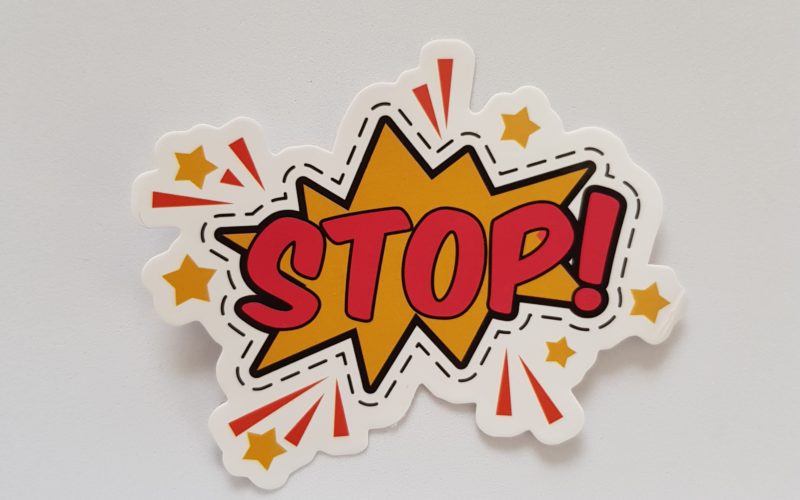In 2003, Robert Kirkman released the hit comic book series, Invincible. The series, which tells the coming-of-age story of Mark Grayson, teenage son of the world’s most powerful superhero, Omni-Man, gained popularity with 144 issues released between 2003 and 2018. Amazon studios obtained the rights to make an animated adaption of the comic book series. In The Invincible animated series was released in March of 2021 and quickly rose to popularity on the streaming platform and gained the attention of critics. The series was renewed for an additional two seasons because of its massive success.
Unfortunately, not everyone who took part in the development of the Invincible comic book series has shared in the financial success of the Amazon Studios series. Kirkman co-created and wrote all the issues of the violent and colorful comic series with artists Corey Walker and Ryan Ottley. Although the original colorist of the series, William Crabtree, developed the aesthetic and color scheme of the series from the very first issues of the comic series, he has never been acknowledged by the others as one of the co-creators of the series.
The Complaint: Crabtree v. Kirkman
The Amazon Studios animated adaption of Invincible led to an evolving legal battle. On January 9th, 2022, Crabtree filed a complaint in the United States District Court for the Central District of California against Kirkman alleging that Kirkman tricked him into signing away his copyright ownership rights in Invincible as the original colorist of the series.1[1]Complaint & Demand for Jury Trial, Crabtree v. Kirkman, Case No. 2:22-cv-00180 (C.D. Cal. Jan. 9, 2022) Kirkman claims that Crabtree’s work was a “work for hire” and has refused to pay Crabtree any royalties stemming from the new television series.2[2]Id. at ¶ 3.
Crabtree’s complaint alleges fraud, and breach of an oral agreement.3[3]Id. at ¶ 5. He is seeking monetary damages, a declaration that he is a joint author of the Invincible comics, and an accounting of all the payments and royalties Kirkman owes Crabtree by way of Crabtree’s ownership interest in the Invincible comics.4[4]Id.
In the complaint, Crabtree alleges that in 2005, Kirkman approached him and said he had been in discussions with movie and television studios about turning Invincible into a television series or movie. Kirkman told Crabtree he had to sign a “Certificate of Authorship” to make the comic series easier to market.5[5]Id. at ¶ 25. Crabtree claims that Kirkman represented to Crabtree that his financial interest in Invincible would be unchanged.6[6]Id. at ¶ 26. Prior to this incident in 2005, Crabtree claims that he and Kirkman had an oral agreement regarding Crabtree’s financial interest in the Invincible series; Crabtree has maintained that they had mutually agreed that Crabtree would get 20% of the proceeds generated by sales of single issues of the Invincible comic series and 10% of any revenue generate by future television or movie adaptions.7[7]Id. at ¶ 49. Since the release of the Amazon Studios adaption of Invincible, however, Crabtree has not received a cent in royalty payments. Kirkman has denied the existence of any oral agreement and claims he does not owe Crabtree any share of the profits. He claims that all monies received by Crabtree in the past were “bonuses” Kirkman chose to give at his own discretion, but Crabtree was never legally entitled to them.8[8]Id. at ¶ 2.
The Challenges of Collaboration: Joint Ownership and Copyright
Copyright ownership can take two forms: sole authorship and authorship via collaboration. An individual is the sole author of a work if they fix their work in a tangible medium of expression. Collaboration, by contrast, involves more than one individual in the creation of a work; the authors could be joint authors or one or several of the collaborators could get credit under a “work for hire” contract.
The Copyright Act defines joint authorship as: “a work prepared by two or more authors with the intention that their contributions be merged into inseparable or interdependent parts of a unitary whole.”9[9]Copyright Act of 1976, 17 U.S.C. § 101. The Second Circuit has adopted a test that mirrors the definition of joint authorship in the Copyright Act.10[10]Childress v. Taylor, 945 F.2d 500 (2d Cir. 1991) The Second Circuit held the authors of a work must have intended that their individual contributions to a work be merged into a unitary and inseparable whole.11[11]Id. Additionally, the individuals must have had the intent for this to be the result from the outset of their collaboration.12[12]Id. This test mirrors the definition of joint authorship in the 1976 Copyright Act.
Joint authorship is one avenue for a collaborator to receive ownership interest and compensation for their contributions to a work. Another way a creator may receive credit, and at issue in the case of Crabtree and his contributions to the Invincible series, is a work for hire.
Work for Hire: Working Hard but Hardly Getting Credit?
A work for hire is either a work made by an employee within the scope of their employment or a commissioned work which is not made by an employee, but by an independent creator or contractor, who is hired by another party to create a work.13[13]17 U.S.C. § 101. In this agreement, the individual creating the commissioned work will sign away their ownership interest in the work over to the individual or company that hired them.14[14]Id. A commissioned work for hire can be one of the following nine categories: tests, answers, collective works, audiovisual, translation, supplements, compilations, instructional texts, or atlases.15[15]Anne Marie Hill, Work for Hire Definition in the Copyright Act of 1976: Conflict Over Specially Ordered or Commissioned Works, 74 Cornell L. Rev. 559 (1989), http://scholarship.law.cornell.edu/clr/vol74/iss3/5.
The result of these two possibilities are the same: the creator of the work gives up their own ownership rights and interests in the work to the party they are creating the work for.16[16]Id. Typically, a work for hire agreement is memorialized in writing prior to the creation of the work.17[17]Id. The present case involving Crabtree and Kirkman is a perfect example of why a work for hire arrangement should be memorialized in writing prior to the creation of the work. It is important for both parties, and particularly important for the artists or creator, to understand what the agreement means, how they will be compensated, and how this arrangement will affect their future ownership interest in the work they are being either commissioned to make or making as an employee. So, where does this leave Crabtree?
Kirkman’s Alleged Trickery versus Crabtree’s Lack of Proof
Crabtree’s complaint states that he should be credited as a co-creator of the Invincible comics and that he should have the rights of a joint author.18[18]Complaint at ¶ 1. Unfortunately, Crabtree has a few significant barriers to overcome to prove this. Crabtree must show that both he and Kirkman intended from the inception of the Invincible comics for their contributions to become a unitary whole and they intended to be joint authors.19[19]17 U.S.C. § 101. This may be difficult for Crabtree to prove; he has only ever been credited as a colorist on the series and on the early comics where he is listed on the credits, the only individuals who are labeled as “co-creators” are Kirkman and artist Cory Walker.20[20]Aaron Moss, “Not Invincible: A Cautionary Tale for Creators”, Copyright Lately, (Jan. 2022), https://copyrightlately.com/not-invincible-a-cautionary-tale-for-creators/. This evidence could work in favor of Kirkman who argues that he never intended for Crabtree to be a joint author of the series.
Crabtree also argues that he was fraudulently induced into signing away his rights to the series. Unfortunately, this “Certificate of Authorship” Kirkman allegedly forced him to sign is the only written agreement that exists between the two. Kirkman claims that they never had any oral agreement, and it is likely that he and his lawyers may argue that although this agreement was signed after the series began releasing, Kirkman always intended for Crabtree’s contributions to be a work for hire. Although some of the evidence weighs against Crabtree, Crabtree argues that Kirkman was not acting in good faith because he tricked him into signing the Certificate of Authorship and did not give him time to consult with an attorney about the implications of the contract.21[21]Complaint at ¶ 3. Because the original agreement between the parties was allegedly an oral agreement, neither party can really prove what the intent was when the comics were first created, which is essential to either proving or denying joint authorship.
If Crabtree had consulted legal counsel or insisted on a written agreement, he would have evidence to support his claims regarding the unfair agreement. Additionally, such a written agreement would have confirmed or denied the status of his work being a work for hire. This contentious and ongoing legal battle between a writer and a colorist is an unfortunate but excellent reminder to creators looking to collaborate on a project of the importance of memorializing any agreements on collaborators’ copyright interests in writing.
Written by: Emma Conaway
Emma is a 2023 J.D. Candidate at Brooklyn Law School
1 Complaint & Demand for Jury Trial, Crabtree v. Kirkman, Case No. 2:22-cv-00180 (C.D. Cal. Jan. 9, 2022)
2 Id. at ¶ 3.
3 Id. at ¶ 5.
4 Id.
5 Id. at ¶ 25.
6 Id. at ¶ 26.
7 Id. at ¶ 49.
8 Id. at ¶ 2.
9 Copyright Act of 1976, 17 U.S.C. § 101.
10 Childress v. Taylor, 945 F.2d 500 (2d Cir. 1991)
11 Id.
12 Id.
13 17 U.S.C. § 101.
14 Id.
15 Anne Marie Hill, Work for Hire Definition in the Copyright Act of 1976: Conflict Over Specially Ordered or Commissioned Works, 74 Cornell L. Rev. 559 (1989), http://scholarship.law.cornell.edu/clr/vol74/iss3/5.
16 Id.
17 Id.
18 Complaint at ¶ 1.
19 17 U.S.C. § 101.
20 Aaron Moss, “Not Invincible: A Cautionary Tale for Creators”, Copyright Lately, (Jan. 2022), https://copyrightlately.com/not-invincible-a-cautionary-tale-for-creators/.
21 Complaint at ¶ 3.




